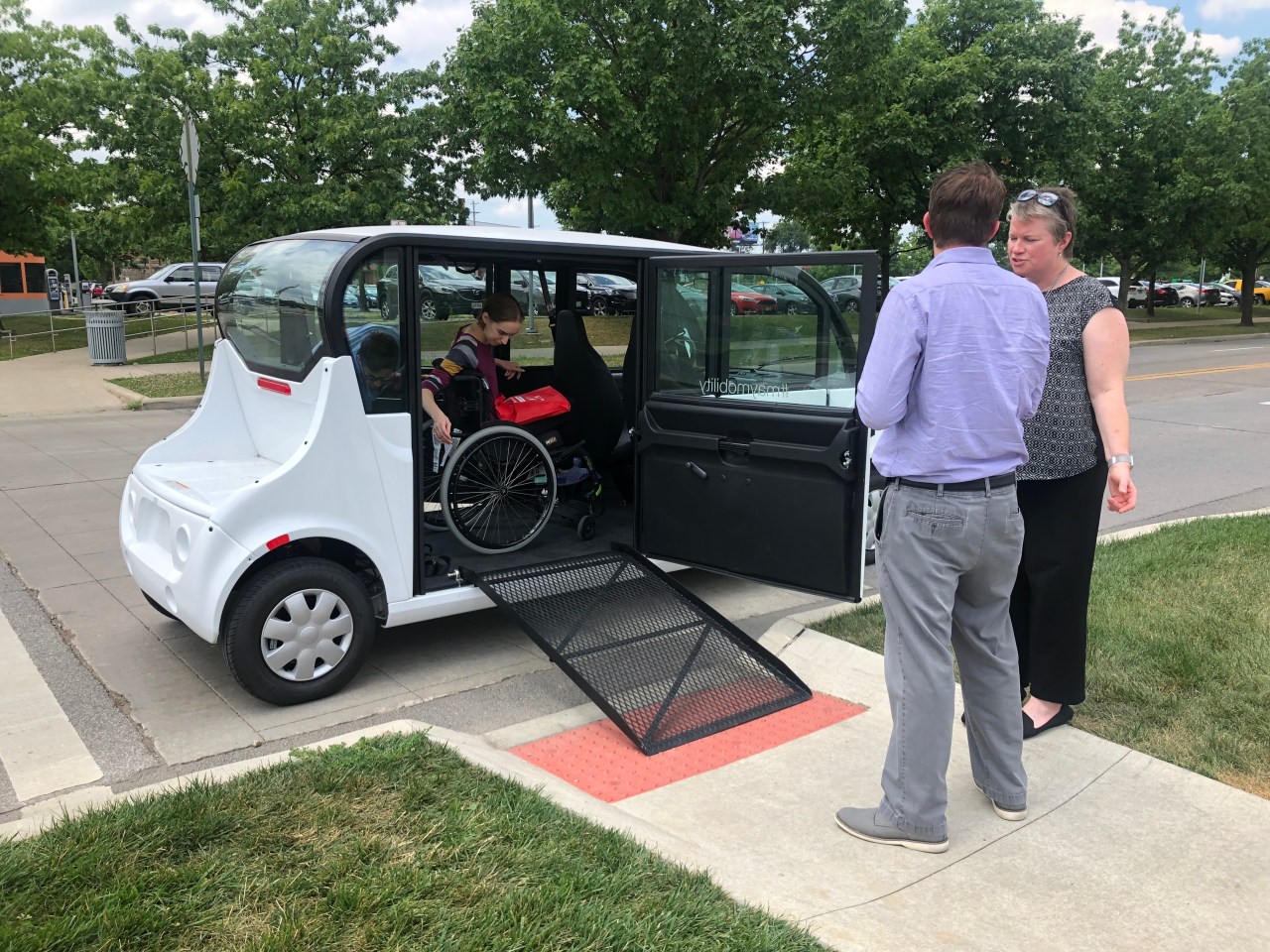The advent of autonomous vehicles is often touted as a marvelous leap toward a high-tech future, promising transformed urban landscapes and effortless commuting. However, in the race toward innovation, it is crucial we don’t overlook an essential aspect: accessibility. May Mobility, an autonomous transportation startup, is leading the charge in this sector by developing a prototype of a wheelchair-accessible autonomous shuttle. Their mission goes beyond just offering rides; it aims to cultivate an inclusive environment for all users, ensuring that self-driving technology leaves nobody behind.
Understanding the Prototype: Inclusive Design at Its Core
This groundbreaking prototype by May Mobility is designed to cater specifically to wheelchair users. It employs features that facilitate easier entry and exit, addressing one of the prevalent challenges faced by individuals with mobility impairments. The company has been diligent in running community feedback sessions in Columbus, Ohio, allowing actual prospective users to express their needs and experiences.
Feedback Loops: Enhancing User Experience
Listening to the community is not merely a checkbox for May Mobility; it’s an integral part of its development process. From the initial feedback, the team recognized the importance of making necessary adjustments, such as:
- Ramp Design: One of the key pain points highlighted was the ramp length. A longer ramp would allow for a more gradual onboarding and disembarking process, making it easier for passengers.
- Optimized Pick-Up and Drop-Off Points: Creating designated areas that allow for easier access will greatly enhance the overall experience for users.
These changes underscore the company’s commitment to continuous improvement. May Mobility acknowledges that this journey has just begun and it will continue to evolve its designs based on user experiences.
Going Beyond Conventional Transport
What sets May Mobility apart is its focus on practical implementations of autonomous vehicles in real-world scenarios. The low-speed electric vehicles they deploy are tailored specifically for the type of environment where they will operate. This sets a precedent for other companies to prioritize real-world impact alongside technological advancements.
While the broader autonomous transport industry is sailing toward promising horizons, many are still grappling with the nuances of truly accessible design. In contrast, May Mobility’s proactive approach in engaging with community members offers significant value and demonstrates how technology can be leveraged for social good.
Industry Collaboration and Wider Impacts
The strides taken by May Mobility echo across the industry, prompting others like Lyft to also consider inclusivity in their planning. The company is collaborating with Aptiv and the National Federation of the Blind to create a self-driving service that will cater to blind and low-vision passengers. As these initiatives progress, the overarching goal remains clear: make transportation accessible for everyone.
A Vision for the Future
May Mobility is not merely focused on revolutionizing transportation; it is committed to transforming cities into more accessible, safer, and environmentally friendly spaces. “How can we make transportation easier for everybody?” asks Alisyn Malek, co-founder and COO of May Mobility, emphasizing their mission resonates across every demographic.
In the grand scheme, the advancements made today are paving the way for an inclusive tomorrow. At fxis.ai, we believe that such advancements are crucial for the future of AI, as they enable more comprehensive and effective solutions. Our team is continually exploring new methodologies to push the envelope in artificial intelligence, ensuring that our clients benefit from the latest technological innovations.
Conclusion: The Road Ahead
The road toward an accessible future in autonomous vehicles is filled with challenges, but companies like May Mobility are making progress in the right direction. By directly collaborating with the community and focusing on user feedback, they are not just building vehicles; they are laying the groundwork for a more equitable transportation landscape. As discussions around autonomous transport evolve, it’s clear that accessibility must take center stage. For more insights, updates, or to collaborate on AI development projects, stay connected with fxis.ai.

